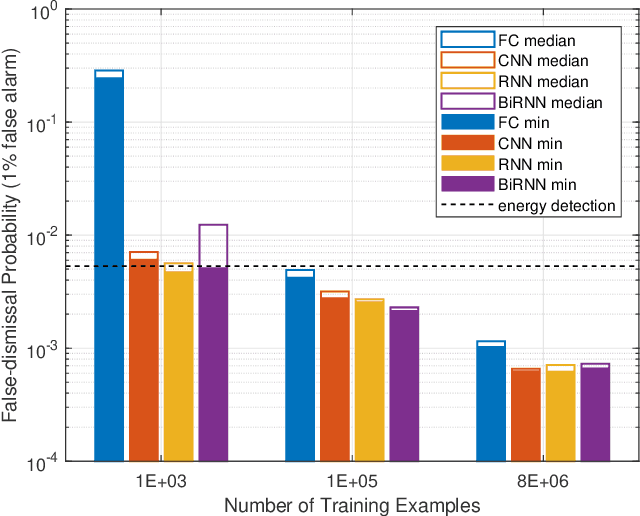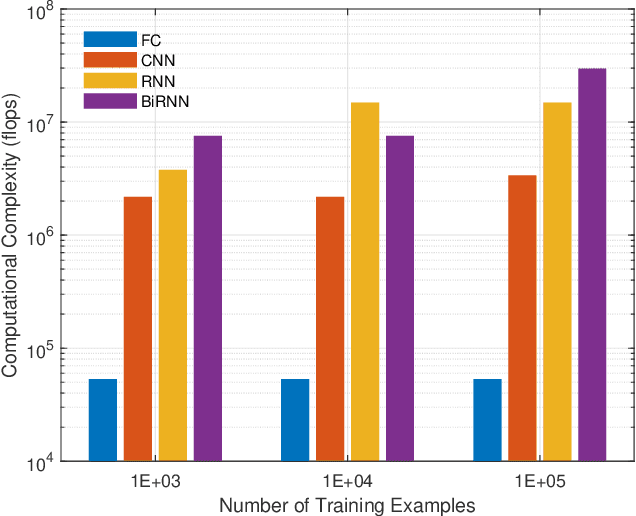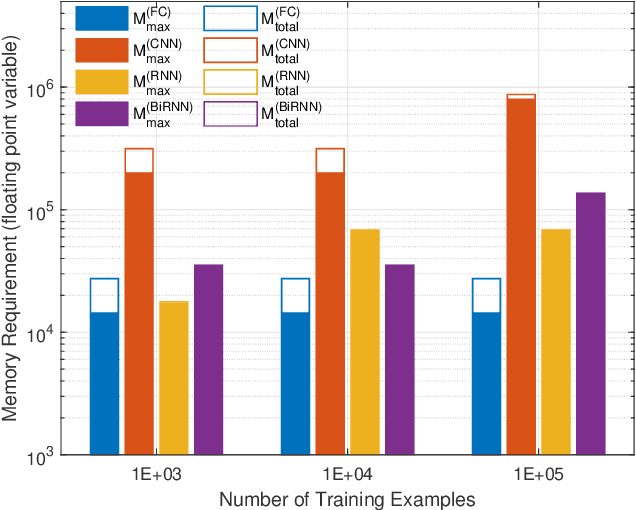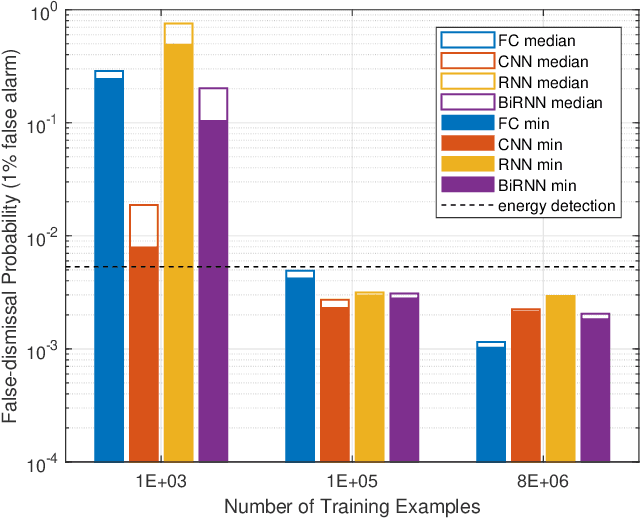Comparison of Neural Network Architectures for Spectrum Sensing
Paper and Code
Jul 15, 2019



Different neural network (NN) architectures have different advantages. Convolutional neural networks (CNNs) achieved enormous success in computer vision, while recurrent neural networks (RNNs) gained popularity in speech recognition. It is not known which type of NN architecture is the best fit for classification of communication signals. In this work, we compare the behavior of fully-connected NN (FC), CNN, RNN, and bi-directional RNN (BiRNN) in a spectrum sensing task. The four NN architectures are compared on their detection performance, requirement of training data, computational complexity, and memory requirement. Given abundant training data and computational and memory resources, CNN, RNN, and BiRNN are shown to achieve similar performance. The performance of FC is worse than that of the other three types, except in the case where computational complexity is stringently limited.
 Add to Chrome
Add to Chrome Add to Firefox
Add to Firefox Add to Edge
Add to Edge